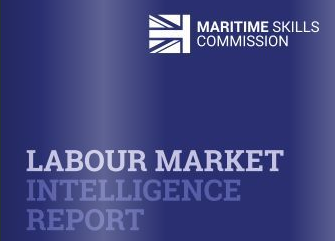Posted on: 22 September 2020
The Maritime Skills Commission (MSC) has published the Labour Market Intelligence Report to help identify the skills gaps in the UK maritime sector. The Commission, established by umbrella body Maritime UK and the Department for Transport in January 2019, was set up to understand the skills needs of the sector, including accounting for the effects of technological change, and to make recommendations for action. Graham Baldwin, Vice Chancellor at the University of Central Lancashire is chair of the group.
The report contains information that is set to guide the Commission’s Scheme of Work and is a core part of delivering the Department for Transport’s Maritime 2050 strategy. Initial projects under the Scheme include a seafarer cadet review; future workforce research and early meeting for exporters and the Department of International Trade to discuss ‘increased exports of maritime education and training’.
The report highlights several findings for the Commission including:
- The only part of the maritime sector with pressing short-term issues which hinder growth is the building side of the leisure marine sector
- The Merchant Navy Cadet programme must be re-evaluated
- Automation requires new skills and recommends that the Commission has a strong idea of what it hopes to achieve by avoiding approaching the topic without focus
- The skills gap in engineering has never been clearly defined and efforts to encourage young people into STEM subjects is not working. It recommends that the Commission must do more to understand this problem.
The evidence presents a sector with a range of skills issues however more data is required to inform decision making. Brexit turbulence and the coronavirus will change the environment further, making it more challenging to fully understand the implications of future interventions. With so many gaps and challenges, prioritisation of activity and work is essential for the Commission.
Graham Baldwin, Chair, Maritime Skills Commission said: “We are facing unprecedented times as a nation and sector. I am thankful to the government for establishing the Commission, through Maritime UK, to ensure we have a continuous pipeline of highly skilled, diverse people to support the sector’s growth.
“I very much appreciate the work of the Commissioners I am delighted to release the initial output of the MSC today. The MSC will depend on a two-way dialogue with the sector to ensure we understand skills shortages, and future demands. We will be communicating regularly with stakeholders to ensure we can deliver our Scheme of Work and projects.”
Harry Theochari, Chair of Maritime UK commented: “I am delighted the Commission is driving the skills agenda forward at pace to ensure we have a skilled and diverse workforce supporting the sector as we move towards being net-zero by 2050.
“The Commission was always a critical element of Maritime 2050, but now, following coronavirus, its role is even more pivotal, and urgent. The Commission is a true embodiment of the kind of partnership between industry and government that we need to enhance the UK’s position as a world-class maritime nation.”




